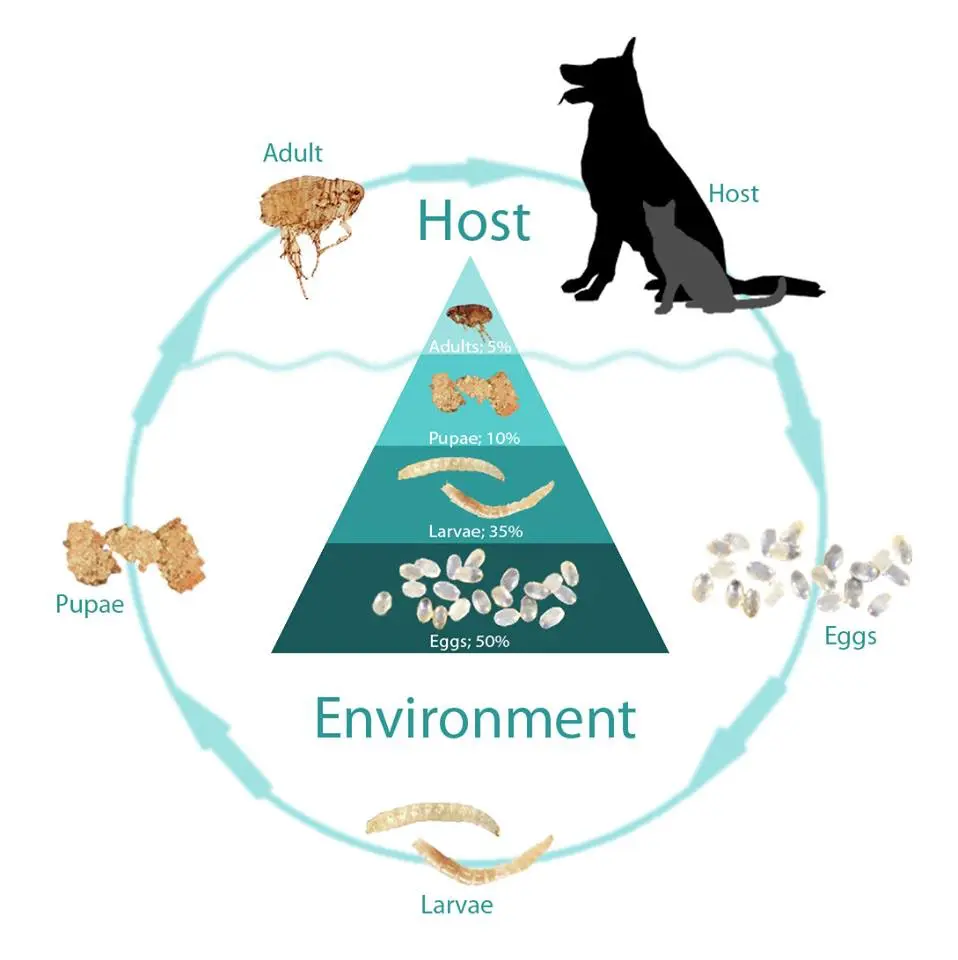[vc_row css_animation=”” row_type=”row” use_row_as_full_screen_section=”no” type=”full_width” angled_section=”no” text_align=”left” background_image_as_pattern=”without_pattern”][vc_column][vc_column_text]Most pet owners know that fleas can irritate their pets skin, causing them to scratch, and some pets may even be allergic to flea bites. But do you know the lifecycle of fleas, and how it is important in their control?
The lifecycle starts with adult female fleas, who feed on the blood of dogs and cats, breed, and lay eggs which fall off into the environment. When stimulated to hatch, from environmental factors such as warmth and humidity, the eggs hatch into their larval stage which remain in the environment. These larvae feed on debris in the environment, particularly the faeces produced from adult fleas. After a few days the larvae develop into pupae, and then adult fleas which will jump onto a new host- your pet dog or cat, continuing their lifecycle.
This lifecycle is important, because it shows us the different areas of the cycle that we can control. As the image shows, only 5% of the flea population lives on our pets- the rest are in the environment, as eggs, larvae or pupae. So it is important to treat your pet regularly with products aimed at killing the adult fleas, however it is still important to manage the environmental stages. This includes regular vacuuming and cleaning of the house to reduce organic debris the larval stages may feed on, and potentially utilising environmental pesticides.
If you think you may have a flea problem and would like to discuss your options, call us on 3807-3699 and ask one of our friendly staff who can help you choose the most suitable option for you and your pets.[/vc_column_text][vc_separator type=”transparent” up=”30″][vc_single_image image=”16827″ img_size=”full” qode_css_animation=””][/vc_column][/vc_row]




